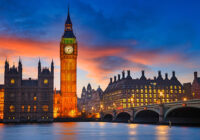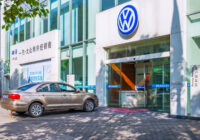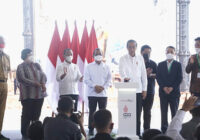Somehow, the voice of Europe has lost its former significance. This is hardly noticeable from within Europe, but I assure you, it is very striking when viewed from other continents.
Everything may seem unchanged–Josep Borrell Fontenes, The High Representative of the European Union for Foreign Affairs and Security Policy, continues to focus on his prominent political issues. The leaders of France, Germany, and the UK remain in the primetime news spotlight. European media produce a considerable amount of content featuring prominent European leaders. Sadly, all of this is just a beautiful facade.
In reality, things are quite bleak for Europeans. Borrell seems unable to become the voice of a unified Europe on the international stage, although he still desires it greatly. It was well-highlighted by POLITICO-Europe, “Borrell has always condemned the Hamas attacks, called for the unconditional liberation of all hostages, for a humanitarian pause leading to a sustainable cease-fire, for the humanitarian provision and a two-state solution, along the same line of the European Council conclusions that leaders unanimously agreed in March.” Nevertheless “during a meeting of EU leaders, German Chancellor Olaf Scholz and his Austrian counterpart Karl Nehammer confronted Josep Borrell on his months-long outspoken critique of Israel as the death toll in Gaza mounted, according to two officials briefed on the exchange.”
It looks like the euro bureaucracy restricts Borrell’s freedom. He always feels free to give careless comments. E.g. he is notorious for his “garden vs. jungle” metaphor that made him the EU’s undiplomatic top diplomat. Many times, he ends up in awkward situations. Now, hardly anyone can take him seriously and perceive him as an influential politician following his own policy. On the contrary, his behavior represents what the global West will become – noisy but increasingly irrelevant.
One after another, new nationally oriented African leaders asked France to leave the region. Following coups in those countries, neighboring Mali and Burkina Faso have already kicked out France’s forces. This has weakened its influence in its former colonies amid a wave of anti-French sentiment.
Paris does it without resistance, not even formally attempting to negotiate its interests. For more than two months, French President Emmanuel Macron took a defiant stance, ignoring the ultimatum set by the junta in Niger, who came to power in July after a military coup. France refused to engage with the junta leaders or move on their demands to remove French troops stationed in the country to fight terrorism.
It withdrew its military contingents. Meanwhile, President Macron is trying to make history calling for an “Olympic truce” during the Olympics scheduled to take place from July 26 to August 11, 2024, in Paris.“We will do everything to have an Olympic truce, we will work on it,” Macron said in an interview with BFM television. But his voice is still weak and Europe is reluctant to listen to him, let alone Moscow. Macron pleads for an Olympic truce but suffers double rejection. What happens now does not align well with France’s international reputation and Macron’s ego.
Half of the German population opposes China’s influence. At the dawn of a new political era, the German population’s growing mistrust of China has significant implications for the country’s foreign policy. The other half “dreams” of Beijing coming to their country and “taking it over as an investor.”German business associations widely welcome China’s economic strategy.
However, when Scholz arrived in China on an official visit this April, he faced a change in attitude toward him by the Chinese officials. Scholz was forced to deal with the low-level diplomatic reception. The Chongqing Vice Mayor Zhang Guozhi was the only official who met him upon arriving at the airport. It was a flagrant breach of protocol to receive foreign leaders or diplomats at the wrong level. It sends a negative message when you receive or offer to receive another country leader at a lower level. The MFAs of any country know that, but Scholz had no choice but to accept this reality.
At Tel Aviv airport, air sirens forced Chancellor Scholz to lie on the ground due to a missile attack threat from Hezbollah. That was a severe blow to the image of the head of one of Europe’s leading countries. People in the Middle East will remember this episode for a long time. Video showed panicked German officials fleeing a plane amid a missile threat in Israel became top news. It is challenging to follow up the tough guy position during future contacts after such public experience, especially in the Middle East, where value leaders and individuals who uphold personal strength are challenging.
Despite Britain not being a part of the EU anymore, it maintains the first-line position among the leaders of Europe. London nowadays took a wait-and-see approach and preferred not to stick its neck out unnecessarily. The English have always been characterized by a healthy sense of caution. Prime Minister Rishi Sunak is formally active and visible, traveling the world and talking even more. He says the right things, but they are not his thoughts and ideas. He repeats everything already said at various levels in Washington, not adding personal insight into the situation. This wise behavior allows him to avoid taking responsibility and escape unnecessary scrutiny of his personality.
The above is just a small part of what people in Asia and the Global South observe. And they are not at all happy about it. What these countries need is sustainable growth and development. Alongside North America, Asia is where the European Union and its member states are most deeply economically intertwined – through trade, supply chains, investment, financial flows, and mutual reliance on market demand.
But it is only possible when a partner, even a stronger one, behaves consistently and predictably. As even Prince Michael of Liechtenstein admits, European countries say they base their foreign policies on values – but doing so has led to inconsistency in how they treat international partners. Europe is gradually losing these qualities in the eyes of people living on other continents.
Many people in Asia have come to perceive Europe as a political open space leaning towards its decline. They still have money and technology, but long-term investors and manufacturing capacity are steadily moving to other world regions. The stability of the European economy depends more and more on China and Asia. The leaders of Europe are already rushing to the region and are looking back and forth at each other.
Europeans still influence global politics, e.g. as a global actor, the EU and the UK inspire countries worldwide and strengthen international development in many ways. At the same time, they have continued to fail to influence the end of the war in Ukraine. The conflict has been going on for three years, and European approaches still oscillate from bravado to panic. It is unlikely that Moscow or Kyiv will take such a political approach seriously. Europe should be more persistent and figure out its goals, ways and means more unambiguously, speaking with one voice to clarify its position for everybody.
Human rights continue to represent one of the core values of Europe. But in the face of the conflict in Gaza, many European countries are losing the moral right to lecture others on the issue. Although this is not just a European problem, the Europeans are not able to come up with an effective formula to stop the endless and merciless bloodshed on both sides.
The results of the European elections held over the past month — notably, the significant rise of right-wing parties — have sent another clear message. Europeans are tired of dealing with the consequences of current social and economic policies and want change.
Calling snap elections in France for June 9, Macron described his decision as an “act of confidence.” However, his centrist Renaissance party showed a significant lag (21.27%) behind the far-right Rassemblement National (31.4%) in the first round. While he managed to squeak out of total defeat by working with the Left to exclude Rassemblement National, his position is seriously compromised. This suggests that Macron’s “confidence” stemmed from his erratic policies, which lost touch with the real issues faced by the French people.
On July 4, Britain’s ruling Conservative Party was thrown out of government after 14 years of rule. Here, unlike on the continent, the establishment belongs to the Right, and it was to the Left that the people turned to express their discontent. The Labour Party won a landslide victory with 411 out of the House of Commons’ 650 seats. Voters deserted the Sunak-led ruling Conservative Party due to his numerous mistakes, which have led the country to its current state.
Considering what is happening now, it would be understandable for Asian countries to seek more stable and predictable relations. That’s why so many governments are willing to join BRICS. Countries from Iran to Saudi Arabia, Argentina, Algeria, Indonesia, Egypt, Ethiopia, Cuba and Kazakhstan have considered joining.
China’s One Belt, One Road initiative also attracts an increasing number of supporters. There are 150 countries formally affiliated with the Belt and Road Initiative, and six more are considering joining it shortly. Cooperation within the Association of Southeast Asian Nations (ASEAN) and the Comprehensive Regional Economic Partnership is gaining momentum. Europe and Western countries participated insignificantly in all of this. Once again, in its history, Europe has faced the need to clearly understand itself and its role in the rapidly changing modern world. The emerging confrontation between the West and the East requires an adequate and balanced response.
Europe has to stop reflecting on the past. The old international world order is already fading into the past. The Global South is developing rapidly and demands fair consideration of its interests. Asia is closely watching Europe lose its power but dreams of its colonialism-based part of the US-led rule-based order. Europeans need to accept the new reality as quickly as possible and keep up with the times.
[Liam Roman edited this piece.]
The views expressed in this article are the author’s own and do not necessarily reflect Fair Observer’s editorial policy.
Support Fair Observer
We rely on your support for our independence, diversity and quality.
For more than 10 years, Fair Observer has been free, fair and independent. No billionaire owns us, no advertisers control us. We are a reader-supported nonprofit. Unlike many other publications, we keep our content free for readers regardless of where they live or whether they can afford to pay. We have no paywalls and no ads.
In the post-truth era of fake news, echo chambers and filter bubbles, we publish a plurality of perspectives from around the world. Anyone can publish with us, but everyone goes through a rigorous editorial process. So, you get fact-checked, well-reasoned content instead of noise.
We publish 2,500+ voices from 90+ countries. We also conduct education and training programs
on subjects ranging from digital media and journalism to writing and critical thinking. This
doesn’t come cheap. Servers, editors, trainers and web developers cost
money.
Please consider supporting us on a regular basis as a recurring donor or a
sustaining member.
Will you support FO’s journalism?
We rely on your support for our independence, diversity and quality.









Comment